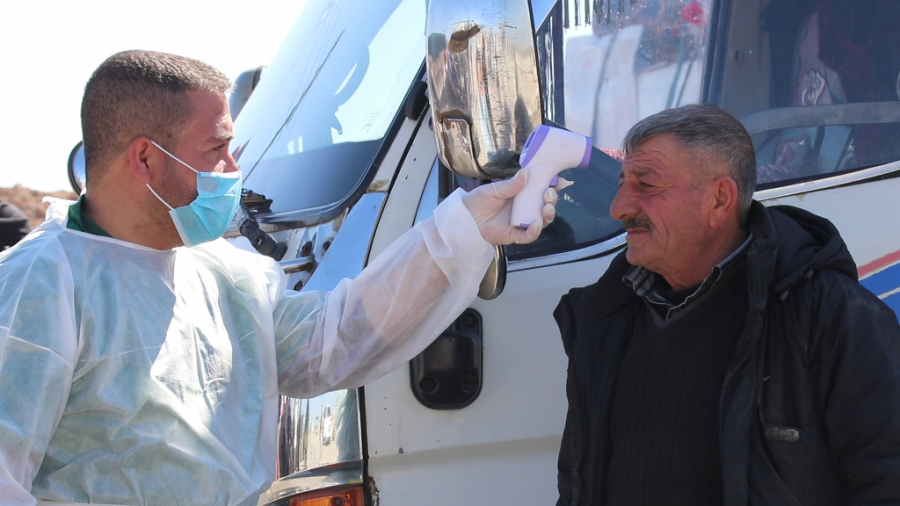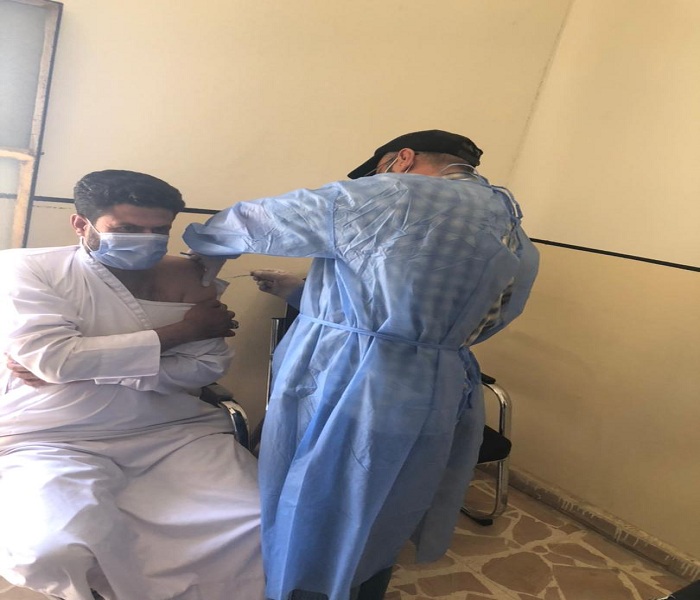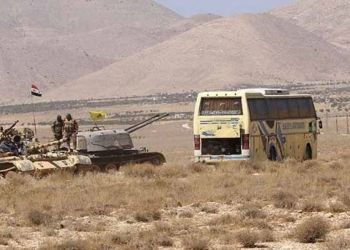This post is also available in:
![]() العربية
العربية
On Sunday, July 26, 2020, the coronavirus (COVID-19) Emergency Team held a meeting in the Autonomous Administration areas in Northeastern Syria, according to sources who told Deir Ezzor 24 Network.
The sources added that the doctor Ghassan al-Yousef, Laila al-Hasan, the joint presidency of Health and Services committees, military figures representing the Syrian Democratic Forces (SDF), and consultants of the Deir Ezzor Civil Administration Council attended the meeting.
The attendees discussed the health situation in Deir Ezzor, especially as there are suspected COVID-19 cases in areas in the eastern Deir Ezzor countryside.
Doctor al-Yousef talked about the health situation and the need for necessary procedures to protect residents of Deir Ezzor from COVID-19.
Doctor Tareq al-Ibraheem, a medical official of the team emphasized that there is no confirmed case of COVID-19 yet as the potential cases registered in the al-Shu’aitat area, Eastern Deir Ezzor are only suspected. Al-Ibraheem added that medical authorities took blood samples of the suspected people in the al-Bubadran. The tests showed negative results. Al-Ibraheem noted that the family of the person suspected to be infected with COVID-19 in al-Shu’aitat transported him to Damascus.
At the end of the meeting, the attendees agreed on precautionary procedures related to health and social matters. The procedures included:
1- Ensuring readiness of medical staff.
2- Providing an oxygen generator within a week maximum.
3- Proving quarantine centers with necessary equipment, medicine, and medical staff for any emergency.
4- Demanding concerned authorities and international organizations to provide a PCR device urgently.
5- Preparing and training specialized medical teams in all areas.
6- Providing hospitals and quarantine centers with resperators.
7- Providing hospitals and quarantine centers with oxygen cylinders.
8- Military force and Internal Security Forces’ working and coordination with the Health Committee and medical staff if necessary.
9- Using media to raise people’s awareness and health culture against COVID-19
10- Allocating hotlines to deal with suspected COVID-19 cases.
11- Closing all crossings, restricting smuggling from the Assad’ regime areas, and punishing those who violate laws with tight punishment that could include imprisonment.
12- Avoiding gatherings, cancelling meals in restaurants except for deliveries, and avoiding social events, condolence tents, and places of worship.












